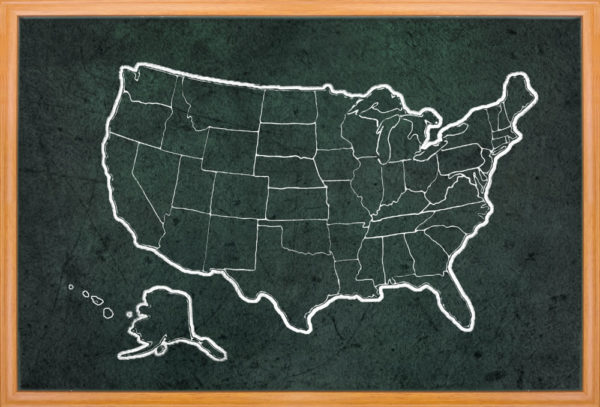States are failing to effectively communicate essential information to families, educators, and communities about how their schools are doing, a new report finds.
The report, Show Me the Data: State Report Cards Must Answer Questions and Inform Action, released today by the Data Quality Campaign (DQC), finds that states are not meeting basic expectations for producing report cards that are easy to access and understand for all community members.
DQC’s analysis found clunky formats, obscure terms, and missing data prevent people from understanding the full picture of education in their state. Titles and descriptions were often packed with jargon, clouding what the data was actually showing. For example, across all states, report cards used more than five different terms to describe children from low-income families. The Every Student Succeeds Act (ESSA), passed last year, builds upon the public, aggregate data reporting requirements in the No Child Left Behind Act it replaces and creates opportunities for state leaders to engage the public in designing the next generation of report cards.
“We can’t afford to remain in the dark about school performance,” said Aimee Rogstad Guidera, president and CEO of the Data Quality Campaign. “State leaders of all kinds have a moral imperative to provide useful information that actually meet communities’ needs. It is time to turn on the flashlight and empower those closest to students with data that can improve student outcomes.”
(Next page: Key findings from the state report cards report)
Governors, state education leaders, and legislators have the opportunity under ESSA to work together to improve the quality of publicly reported education data. Now, more than ever, state leaders must move away from a compliance mentality and meet the information needs of a broad range of communities.
DQC’s analysis focused on what information states include, how they display it, and whether they make it accessible and understandable to a broad public audience.
Among the key findings:
- Only four state report cards meet all data reporting requirements under NCLB.
- Ten states most recent state assessment data is from the 2012-13 or 2013-14 school year.
- Eighteen states require three or more clicks from search engine results to reach the state report card.
- And 45 states produce report cards in English only and provide no resources to have it translated into other languages.
DQC created a corresponding scavenger hunt, Does Your State Report Card Answer Your Questions?, which facilitates a tour of a state report card through the eyes of a parent. Do the activity to learn more about your own state report card and try to get information for your questions or wear the hat of someone else. The scavenger hunt exercise includes search terms and questions based on DQC’s review, as well as information that is particularly useful for families.
Additional recommendations on how states can use ESSA as an opportunity to improve public reporting can be found in Opportunities to Make Data Work for Students in the Every Student Succeeds Act.
Material from a press release was used in this report.
- 4 ways to encourage play in education - April 25, 2024
- It’s time to pay student teachers - April 25, 2024
- The evolving requirements of a K-12 school network - April 24, 2024

